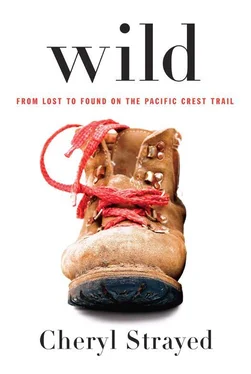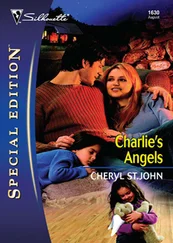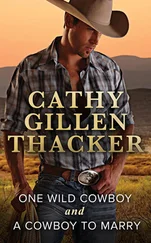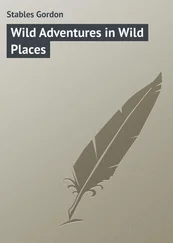Cheryl Strayed - Wild
Здесь есть возможность читать онлайн «Cheryl Strayed - Wild» весь текст электронной книги совершенно бесплатно (целиком полную версию без сокращений). В некоторых случаях можно слушать аудио, скачать через торрент в формате fb2 и присутствует краткое содержание. Год выпуска: 2012, ISBN: 2012, Жанр: Современная проза, на английском языке. Описание произведения, (предисловие) а так же отзывы посетителей доступны на портале библиотеки ЛибКат.
- Название:Wild
- Автор:
- Жанр:
- Год:2012
- ISBN:978-0-307-95765-8
- Рейтинг книги:4 / 5. Голосов: 1
-
Избранное:Добавить в избранное
- Отзывы:
-
Ваша оценка:
- 80
- 1
- 2
- 3
- 4
- 5
Wild: краткое содержание, описание и аннотация
Предлагаем к чтению аннотацию, описание, краткое содержание или предисловие (зависит от того, что написал сам автор книги «Wild»). Если вы не нашли необходимую информацию о книге — напишите в комментариях, мы постараемся отыскать её.
Wild — читать онлайн бесплатно полную книгу (весь текст) целиком
Ниже представлен текст книги, разбитый по страницам. Система сохранения места последней прочитанной страницы, позволяет с удобством читать онлайн бесплатно книгу «Wild», без необходимости каждый раз заново искать на чём Вы остановились. Поставьте закладку, и сможете в любой момент перейти на страницу, на которой закончили чтение.
Интервал:
Закладка:
But again I was wrong. I could only be who it seemed I had to be. Only now more so. I didn’t even remember the woman I was before my life had split in two. Living in that little farmhouse on the edge of Portland, a few months past the second anniversary of my mother’s death, I wasn’t worried about crossing the line anymore. When Paul accepted a job offer in Minneapolis that required him to return to Minnesota midway through our exotic hen-sitting gig, I stayed behind in Oregon and fucked the ex-boyfriend of the woman who owned the exotic hens. I fucked a cook at the restaurant where I’d picked up a job waiting tables. I fucked a massage therapist who gave me a piece of banana cream pie and a free massage. All three of them over the span of five days.
It seemed to me the way it must feel to people who cut themselves on purpose. Not pretty, but clean. Not good, but void of regret. I was trying to heal. Trying to get the bad out of my system so I could be good again. To cure me of myself. At summer’s end, when I returned to Minneapolis to live with Paul, I believed I had. I thought I was different, better, done . And I was for a time, sailing faithfully through the autumn and into the new year. Then I had another affair. I knew I was at the end of a line. I couldn’t bear myself any longer. I had to finally speak the words to Paul that would tear my life apart. Not that I didn’t love him. But that I had to be alone, though I didn’t know why.
My mom had been dead three years.
When I said all the things I had to say, we both fell onto the floor and sobbed. The next day, Paul moved out. Slowly we told our friends that we were splitting up. We hoped we could work it out, we said. We were not necessarily going to get divorced. First, they were in disbelief — we’d seemed so happy , they all said. Next, they were mad — not at us, but at me. One of my dearest friends took the photograph of me she kept in a frame, ripped it in half, and mailed it to me. Another made out with Paul. When I was hurt and jealous about this, I was told by another friend that this was exactly what I deserved: a taste of my own medicine. I couldn’t rightfully disagree, but still my heart was broken. I lay alone on our futon feeling myself almost levitate from pain.
Three months into our separation, we were still in a torturous limbo. I wanted neither to get back together with Paul nor to get divorced. I wanted to be two people so I could do both. Paul was dating a smattering of women, but I was suddenly celibate. Now that I’d smashed up my marriage over sex, sex was the furthest thing from my mind.
“You need to get the hell out of Minneapolis,” said my friend Lisa during one of our late-night heartbreak conversations. “Come visit me in Portland,” she said.
Within the week, I quit my waitressing job, loaded up my truck, and drove west, traveling the same route I’d take exactly one year later on my way to hike the Pacific Crest Trail.
By the time I reached Montana, I knew I’d done the right thing — the wide green land visible for miles outside my windshield, the sky going on even farther. The city of Portland flickered beyond, out of sight. It would be my luscious escape, if only for a brief time. There, I’d leave my troubles behind, I thought.
Instead, I only found more.
3
HUNCHING IN A REMOTELY UPRIGHT POSITION
When I woke the next morning in my room at White’s Motel, I showered and stood naked in front of the mirror, watching myself solemnly brush my teeth. I tried to feel something like excitement but came up only with a morose unease. Every now and then I could see myself — truly see myself — and a sentence would come to me, thundering like a god into my head, and as I saw myself then in front of that tarnished mirror what came was the woman with the hole in her heart . That was me. That was why I’d longed for a companion the night before. That was why I was here, naked in a motel, with this preposterous idea of hiking alone for three months on the PCT. I set my toothbrush down, then leaned into the mirror and stared into my own eyes. I could feel myself disintegrating inside myself like a past-bloom flower in the wind. Every time I moved a muscle, another petal of me blew away. Please , I thought. Please .
I went to the bed and looked at my hiking outfit. I’d laid it out carefully on the bed before I’d gotten into the shower, the way my mom had done for me when I was a child on the first day of school. When I put on my bra and T-shirt, the tiny scabs that still rimmed my new tattoo caught on the shirt’s sleeve and I delicately picked at them. It was my only tattoo — a blue horse on my left deltoid. Paul had one to match. We’d had them done together in honor of our divorce, which had become final only the month before. We weren’t married anymore, but the tattoos seemed proof to us of our everlasting bond.
I wanted to call Paul even more desperately than I had the previous night, but I couldn’t let myself. He knew me too well. He’d hear the sorrow and hesitation in my voice and discern that it was not only that I felt anxious about beginning on the PCT. He’d sense that I had something to tell.
I put my socks on and laced up my boots, went to the window, and pushed the curtain back. The sun was blinding against the white stones of the parking lot. There was a gas station across the way — a good place to hitch a ride to the PCT, I supposed. When I let go of the curtain, the room went dark again. I liked it that way, like a safe cocoon that I’d never have to leave, though I knew I was wrong. It was nine in the morning and already hot outside, the vented white box in the corner come alive with its breezy roar. In spite of everything that implied I was going nowhere, I had someplace to be: it was day 1 on the PCT.
I opened the compartments of my pack and pulled everything out, tossing each item onto the bed. I lifted the plastic bags and emptied them too, then stared at the pile of things. It was everything I had to carry for the next three months.
There was a blue compression sack that held the clothes I wasn’t already wearing — a pair of fleece pants, a long-sleeved thermal shirt, a thick fleece anorak with a hood, two pair of wool socks and two pair of underwear, a thin pair of gloves, a sun hat, a fleece hat, and rain pants — and another, sturdier sack called a dry bag, packed to the gills with all the food I’d need over the next fourteen days, before I reached my first resupply stop at a place called Kennedy Meadows. There was a sleeping bag and a camp chair that could be unclipped to use as a sleeping pad and a headlamp like the kind miners wear and five bungee cords. There was a water purifier and a tiny collapsible stove, a tall aluminum canister of gas, and a little pink lighter. There was a small cooking pot nested inside a larger cooking pot and utensils that folded in half and a cheap pair of sports sandals I intended to wear in camp at the end of each day. There was a quick-dry pack towel, a thermometer keychain, a tarp, and an insulated plastic mug with a handle. There was a snakebite kit and a Swiss army knife, a miniature pair of binoculars in a fake leather zip-up case and a coil of fluorescent-colored rope, a compass I hadn’t yet learned how to use and a book that would teach me how to use the compass called Staying Found that I had intended to read on the plane to LA, but hadn’t. There was a first aid kit in a pristine red canvas case that snapped shut and a roll of toilet paper in a ziplock bag and a stainless-steel trowel that had its own black sheath that said U-Dig-It on the front. There was a small bag of toiletries and personal items I thought I’d need along the way — shampoo and conditioner, soap and lotion and deodorant, nail clippers and insect repellent and sunscreen, a hairbrush and a natural menstrual sponge, and a tube of waterproof sunblock lip balm. There was a flashlight and a metal candle lantern with a votive candle inside and an extra candle and a foldable saw — for what, I did not know — and a green nylon bag with my tent inside. There were two 32-ounce plastic water bottles and a dromedary bag capable of holding 2.6 gallons of water and a nylon fist that unfurled into a rain cover for my backpack and a Gore-Tex ball that opened up to become my raincoat. There were things I brought in case the other things I brought failed — extra batteries, a box of waterproof matches, a Mylar blanket, and a bottle of iodine pills. There were two pens and three books in addition to Staying Found: The Pacific Crest Trail, Volume 1: California (the very guidebook that had set me off on this journey, written by a quartet of authors who spoke in one calm but stern voice about the rigors and rewards of the trail), William Faulkner’s As I Lay Dying , and Adrienne Rich’s The Dream of a Common Language . There was an eight-by-eleven two-hundred-page hardback sketchbook that I used as a journal and a ziplock bag with my driver’s license inside and a small wad of cash, a sheaf of postage stamps, and a tiny spiral notebook with the addresses of friends scrawled on a few pages. There was a full-sized, professional-quality 35-millimeter Minolta X-700 camera with a separate attachable zoom lens and another separate attachable flash and a tiny collapsible tripod, all of which was packed inside a padded camera case the size of a football.
Читать дальшеИнтервал:
Закладка:
Похожие книги на «Wild»
Представляем Вашему вниманию похожие книги на «Wild» списком для выбора. Мы отобрали схожую по названию и смыслу литературу в надежде предоставить читателям больше вариантов отыскать новые, интересные, ещё непрочитанные произведения.
Обсуждение, отзывы о книге «Wild» и просто собственные мнения читателей. Оставьте ваши комментарии, напишите, что Вы думаете о произведении, его смысле или главных героях. Укажите что конкретно понравилось, а что нет, и почему Вы так считаете.












